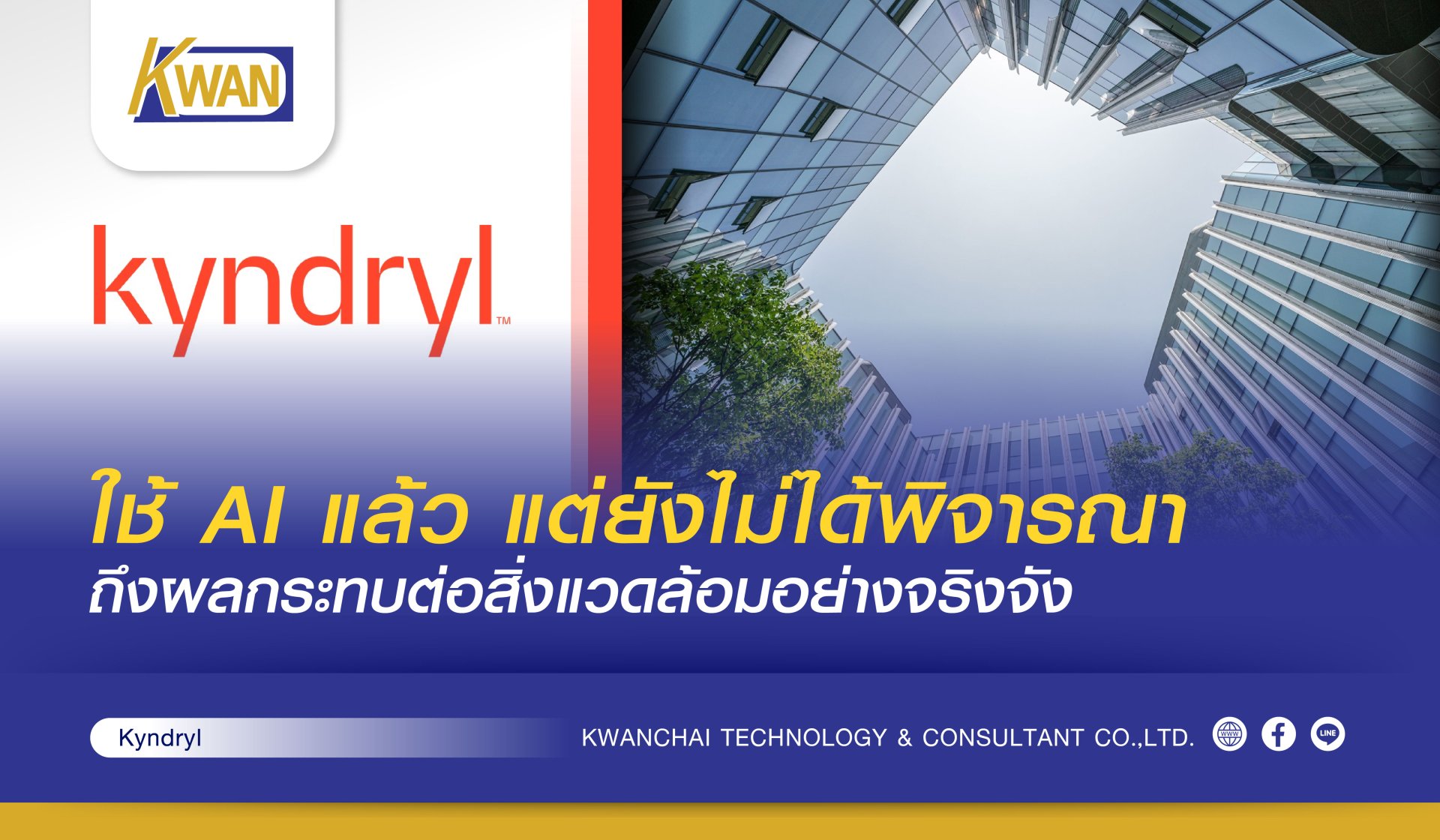Kindril and the Education Quality Control System Meet the events where most of Thailand uses AI But we must also consider the impact on the environment

- The study shows that organizations are able to integrate sustainability initiatives into their strategies, plans and technology deployments.
- Nearly 48% of Thai businesses use AI to track emissions.
- Only 18% use IT to reduce their carbon footprint and achieve broader environmental goals.
Kyndryl (NYSE: KD), the worlds largest information technology infrastructure provider, today released the results of its second Global Sustainability Barometer study, sponsored by Microsoft and conducted by Ecosystm. The study reveals that the majority of businesses in Thailand (82%) are still not considering the environmental impact of their AI solutions. Additionally, while the survey found that 32% of companies in Thailand have increased their sustainability goals and actions each year, only 18% are using information technology (IT) to reduce their corporate carbon footprint and achieve broader environmental goals.
Mr. Kittipong Asawapichayon, Managing Director of Kindril Thailand, said, Thailand is at a critical juncture in its sustainability journey. The Global Sustainability Barometer provides valuable insights into how Thailand can accelerate its journey towards a more sustainable future. The study highlights the need for Thai businesses to not only use technology and data to inform decision-making, but also foster collaboration and engage their employees in sustainability initiatives. Many organizations are trying to translate good intentions and ideas into tangible actions. Leveraging the power of data, AI and collaboration can help organizations bridge this gap, allocate resources more effectively and drive their organizations towards their environmental and social goals more effectively.
Opportunities for Thai businesses
The study found that while Thai business leaders recognize the value of sustainability, they still need to use technology, particularly AI, to improve how they translate goals into action that is more effective and data-driven. The study conducts a detailed analysis and provides insights that can help organizations in Thailand make their sustainability efforts more effective. The following are key principles to help organizations maximize their benefits:
- Make sustainability one of the top business priorities and foster a culture of shared responsibility. For Thailand, the key departments that will set the sustainability vision and goals are the legal and risk teams, followed by the procurement team and the operations team, which is aligned with the goal of creating a sustainable value chain. It is important to create collaboration among all teams, including finance and IT, which must be fully involved to jointly plan for sustainability and implement it more effectively.
- Let technology play a key role While 32% of Thai organizations have significantly increased their sustainability efforts over the past year, companies should go beyond simply reducing the environmental impact of their IT use to leveraging technology to achieve broader sustainability goals, such as improving operational and supply chain efficiency (52% have done so) or using AI to become more productive (47%).
- Use AI effectively and consider its environmental impact. While AI is a game-changer in sustainability strategy, it is important for organisations to be aware of the broader environmental impact of their use of AI. While almost half (48%) of Thai businesses use AI to track environmental issues, the study suggests that there are significant gaps in understanding the environmental impact of AI. Organisations in Thailand need to prioritise responsible AI use by measuring and mitigating the environmental impact of their own AI solutions.
- Focus on seamless data integration and sharing to increase collaboration. 40% of Thai organizations found that the biggest challenge in implementing sustainability measures was overcoming the difficulty of accessing data across fragmented systems. Thai organizations should invest in streamlining the flow of information between departments, which will speed decision-making, provide greater visibility and ensure that sustainability initiatives are backed by accurate, real-time data.
Companies can gain the insights they need to drive sustainability missions and build resilience by integrating sustainability data with their operational and financial data, and using traditional data analytics with powerful AI tools to transform operational performance and foster sustainable innovation, said Matthew Secall, global sustainability expert, Microsoft.
Kindril and Microsoft offer actionable strategies for organizations to quantify their infrastructure footprint and optimize their AI architectures, including AI and machine learning models, to reduce energy use and minimize waste. Kindril and Microsoft are working closely with organizations around the world to ensure that technological advancements positively contribute to sustainability goals without impacting innovation.
We are seeing more and more ASEAN organizations, especially large enterprises and conglomerates, positioning sustainability as an imperative strategic priority, and AI plays a key role in these sustainability initiatives, helping businesses use resources efficiently, reduce waste, and foster a positive environmental impact. This trend is likely to have broader implications for the ASEAN market, fostering a collaborative ecosystem that will create a more sustainable and equitable future for generations to come, said Ulrich Löffler, CEO and Co-Founder of Ecosystm.
Kyndryl / FAQ Co., Ltd. (PR)



